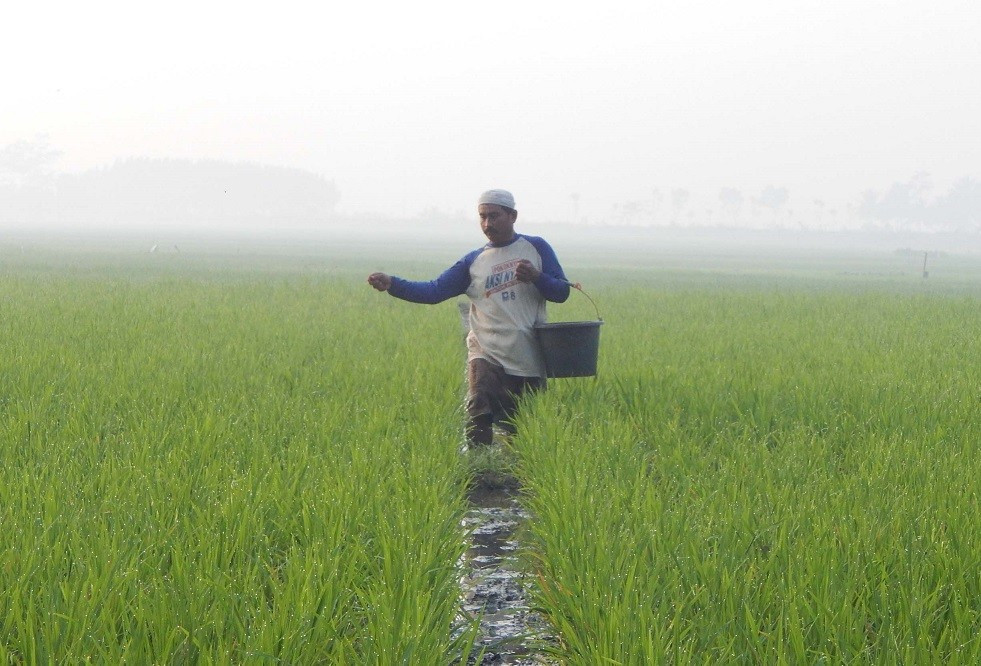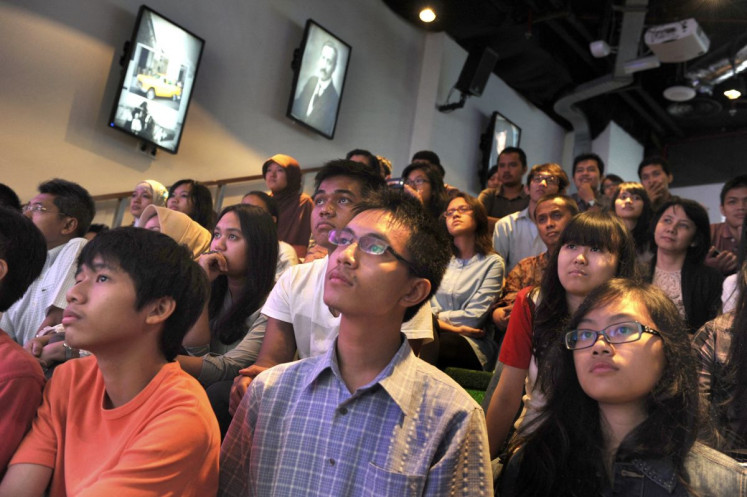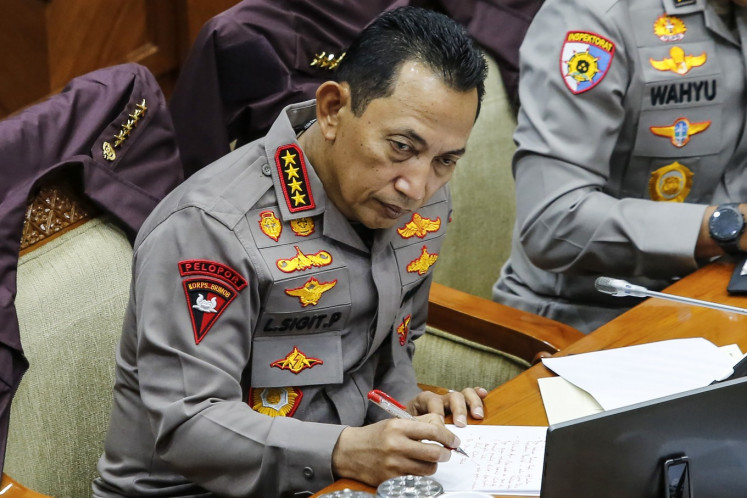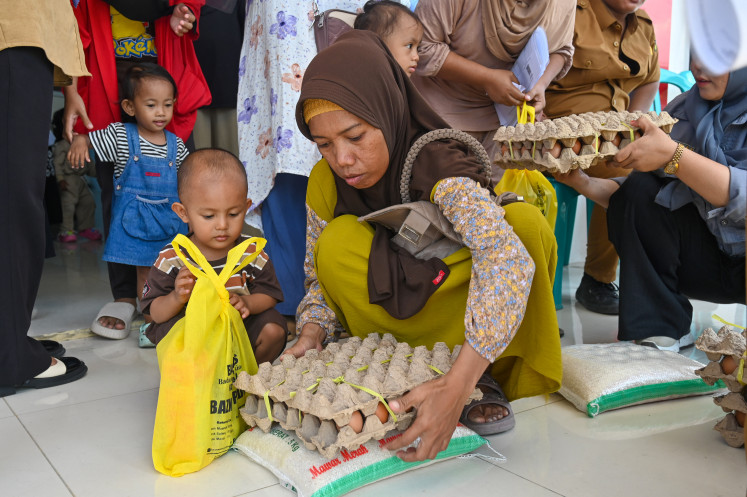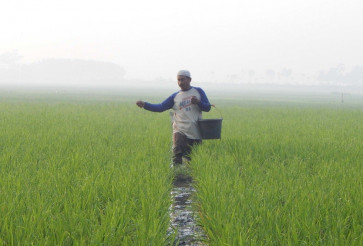Popular Reads
Top Results
Can't find what you're looking for?
View all search resultsPopular Reads
Top Results
Can't find what you're looking for?
View all search resultsAnalysis: Fertilizer subsidy increase suspected to be politically motivated
Change text size
Gift Premium Articles
to Anyone
T
he Indonesian government has decided to raise the portion of its state budget for fertilizer subsidy, one of the Joko “Jokowi” Widodo administration’s last actions ahead of the upcoming 2024 elections. The decision brought attention due to it being in contrast with the second period of President Jokowi’s government, which had previously opted to cut fertilizer subsidy. It also raised concerns that the decision was done with political motives ahead of the elections, with some doubting its effectiveness to the country’s agriculture.
President Jokowi announced the Rp14 trillion (US$898.39 million) increase of the allocated state budget for fertilizer subsidy on Jan. 2, 2023. He claimed that the decision was taken to reduce imports of rice and other food commodities amid El Nino impacts on agricultural yields, especially as the country’s population is projected to rise by 4 million to 4.5 million people annually. The president also explained that fertilizer supply troubles in the country has been affected by the impact of global crises, such as the Russo-Ukrainian War and the COVID-19 pandemic, to the worldwide fertilizer supply chain.
The Agriculture Ministry stated the current 1.7 million tons of fertilizer in stock it recorded is sufficient to fulfill the 1.6 million tons of fertilizer needed for the first planting season that spans from October 2023 to March 2024 for 3.9 million hectares (ha) of cultivated land, which will be worked on from January to February 2024. Furthermore, the ministry sated the increased fertilizer subsidy will be allocated for the second planting season. Jokowi, after discussing with Pupuk Indonesia Holding Company, said the 1.7 million tons of fertilizer includes 1.2 million tons of subsidized fertilizer.
However, Institut Pertanian Bogor professor and Association of Indonesian Seed Banks and Farmer Technology (AB2TI) chair Dwi Andreas Santosa noted the government’s fertilizer subsidy expense soared from Rp17.62 trillion in 2013 to Rp34.31 trillion by 2019 based on Finance Ministry data, but dried milled rice grain production fell from 71.28 million tons to 54.6 million tons in the same period based on Statistics Indonesia data. He said corruption on 20 percent of the subsidy contributed to the policy not correlating with rice production.
Jokowi’s decision to raise fertilizer subsidy by 70 percent year-on-year (yoy) to Rp40.68 trillion from Rp26.68 trillion in 2023 contrasted with the president’s fertilizer policy during his second term when he cut the subsidy by Rp10 trillion.The decision is suspected to be in support of Prabowo Subianto’s presidential campaign, who has Jokowi’s eldest son Gibran Rakabuming Raka as his running mate, by way of increasing Jokowi’s approval rate so people would give support to the candidates that resemble with him the most. Jokowi had also raised fertilizer subsidy ahead of the 2019 general elections, and subsidies contributed to his current approval rating exceeding 73 percent.
The Agriculture Ministry denied that the fertilizer subsidy hike is politically motivated and claimed that the decision is done to increase agriculture production amid the El Niño weather phenomenon’s impact. However, Center of Reform on Economics (CORE) Indonesia said Jokowi should have done the policy when the Russo-Ukrainian War caused fertilizer price to spike in 2022.
What’s more

